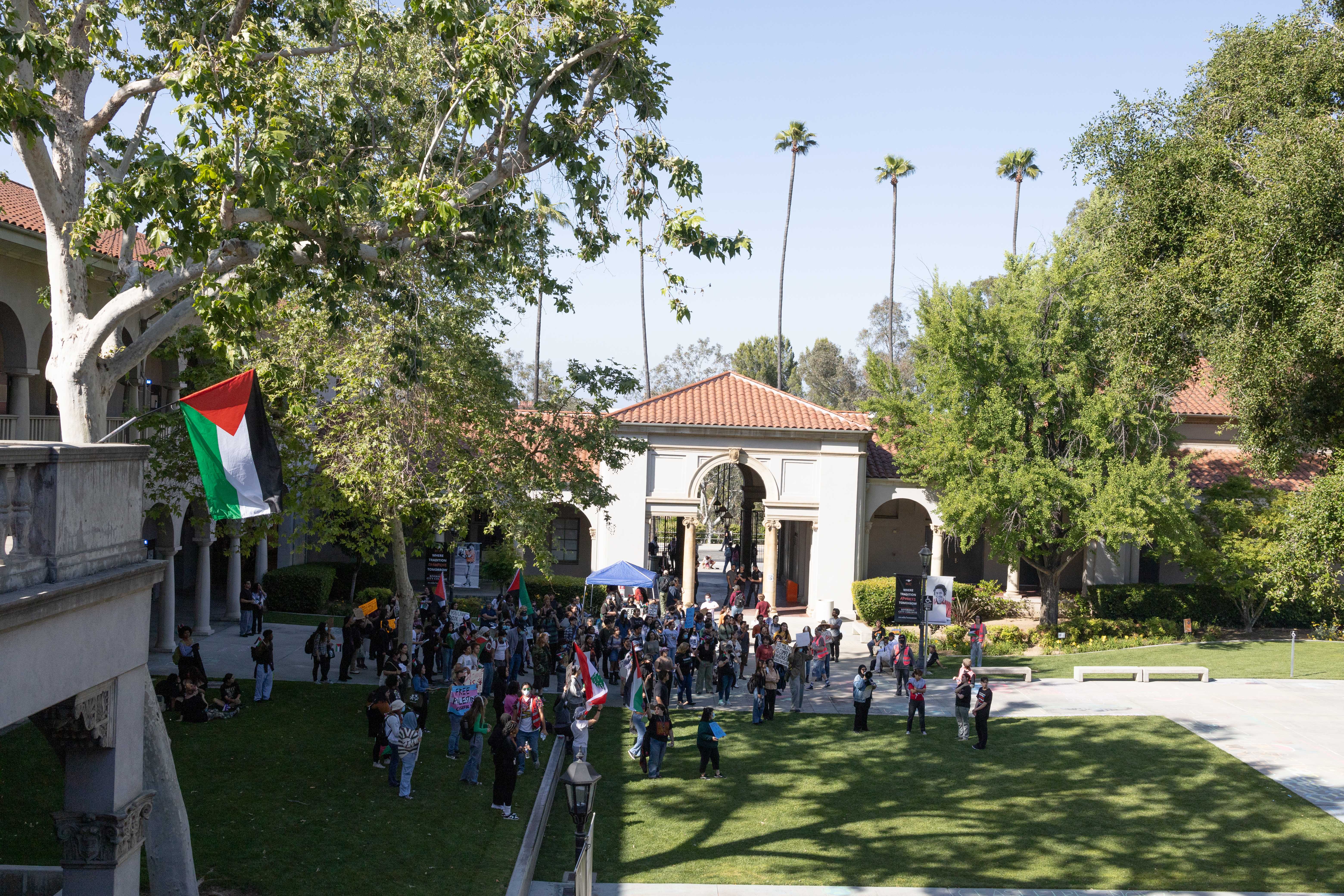By Joannah Clemente
Humphrey Fellows embarked on cross-cultural exchange to address global challenges with students at Riverside City College’s Hall of Fame room in the Bradshaw building on May 1.
Sponsored by the Riverside Community College District Global Learning and Study Abroad Committee, three scholars from this year’s Hubert H. Humphrey Fellowship Program cohort participated in an on-campus educational panel discussion.
Wendy Umave, a scholar from Papua New Guinea, reflected on the transformative value of immersing oneself in a different environment.
“I had to navigate being among the most developed and advanced nation,” she remarked. “Being a productive member and contributing to the global community is something I’ll take with me.”
David Chak, hailing from Malaysia, highlighted the enriching experiences gained through travel and exposure to diverse cultures.
“You get to see so much of the world,” Chak expressed, emphasizing the profound impact of stepping outside one’s comfort zone.
Oscar Hendrix, an advocate from Honduras, shared insights on the nuanced understanding gained through interaction with American society.
He emphasized the proactive nature of the American populace.
“The U.S. people are always there trying to help,” Hendrix said.
Amidst the discourse, the scholars exchanged insights on policy reform.
Chak, an education policy scholar, explored the interplay between federal and state authorities regarding the U.S. education system.
“It could be very fragmented,” he said. “Let’s take teaching critical race theory for example, which we should have some kind of leeway for teachers to do.”
Chak emphasized the need for more uniformity and adaptability in curriculum implementation.
Reflecting on his U.S. college visits, Chak cited Malaysia’s public school admission policy—no rejections.
“It means students have the right to receive education regardless of their citizen status because school is always a sanctuary ground,” Chak said.
Umave, a pharmacist, highlighted the integration of primary health care within Papua New Guinea communities.
She emphasized the importance of bringing essential services directly into communities.
“It’s very challenging for them to access quality health care, even with universal health coverage,” Umave said.
She noted the logistical challenges in accessing healthcare facilities, particularly in developing countries.
Umave advocates for community ownership of health while ensuring sustainable, long-term solutions.
She emphasized proactive, community-driven initiatives and a focus on preventive healthcare.
“It’s counterproductive,” Umave said. “We are in a developing country and what will work for us is public health incorporated into our contexts.”
Discussing the challenges of implementing healthcare interventions, Umave referenced the issue of excessive sugar consumption in some foods.
She said that implementation science is about addressing resistance to interventions that aim to improve health outcomes.
With fervor, Hendrix shed light on pressing issues of transparency, corruption and environmental reform in Honduras.
“In my country, we’re masters in transparency, challenges on human rights and climate change due to the challenges we face with corruption,” he said.
Highlighting the disparity in resources and capacity to tackle environmental issues, Hendrix also emphasized the importance of innovative approaches.
However, Hendrix noted they don’t have the human resources to reach those goals.
“Sometimes innovation is when you don’t have to be so creative,” he said. “It’s just something small, impactful actions.”
Hendrix cited the Minnesota GreenCorps as a model for engaging youth in environmental activism and education.
Noting its effectiveness in empowering communities, he stated, “It provided youth training, stipends, and environmental education while addressing migration and unemployment.”
Additionally, Hendrix praised California’s progressive policies, such as requiring banks to report on the carbon footprint of funded projects by 2025.
He said California is way ahead of the government in that area.
Contrasting that with the situation in Honduras, he stated, “The banks in my country are not held accountable for their role in financing environmentally harmful projects.”
He sought similar accountability policies in Honduras, underscoring the need for systemic environmental changes.
However, for Hendrix, the challenge lies in implementing and adapting to the realities of his country.
Despite this hurdle, he stressed the link between environmental sustainability, financial accountability and social justice in global activism.
“Most of us who get into climate activism do so out of consciousness, not because we have a technical background,” Hendrix asserted.









